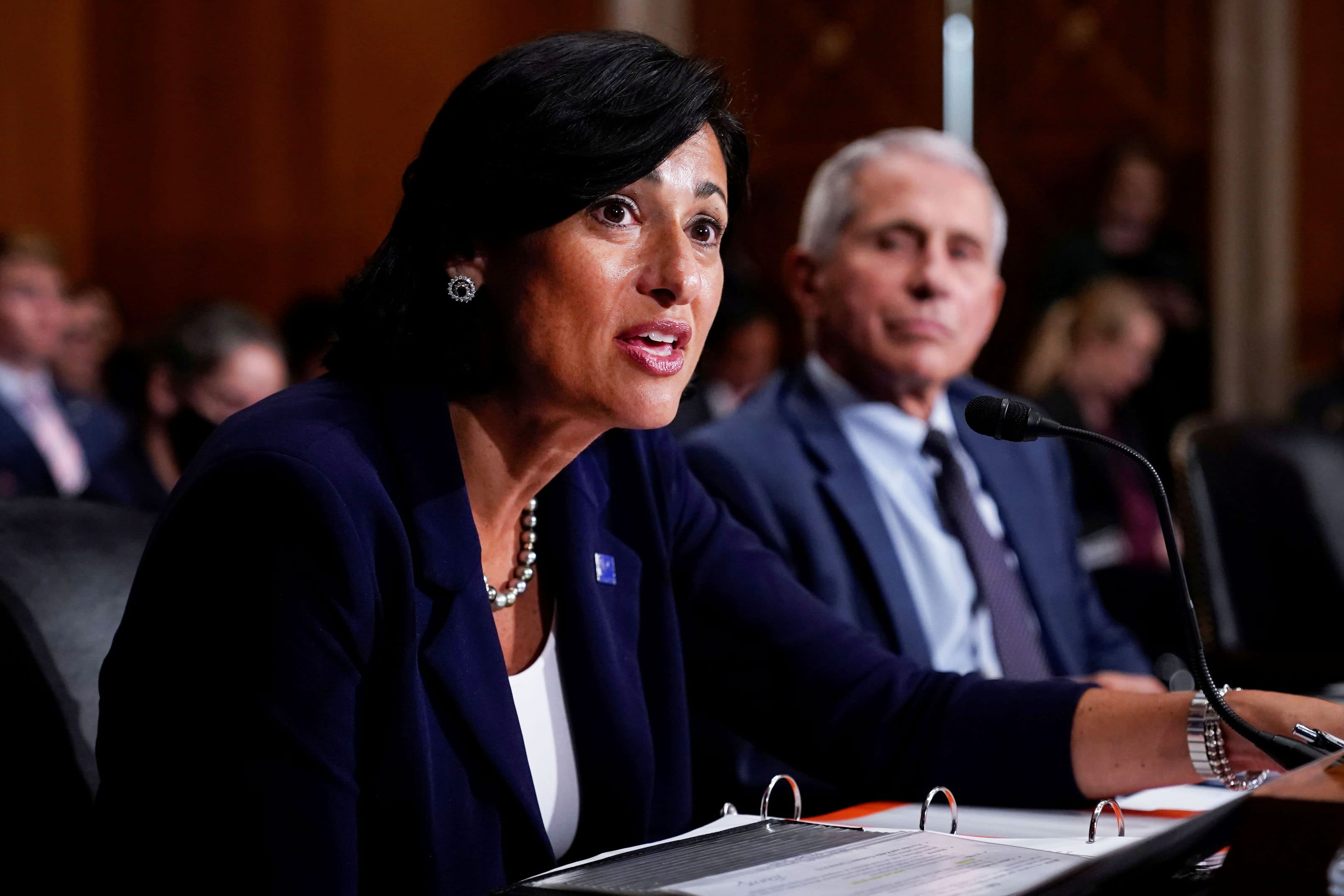CDC Director Dr. Rochelle Walensky cannot predict when the pandemic will end, saying it largely depends on human behavior — and that might be a problem.
As the Covid-19 pandemic stretches into its 20th month, cases in the U.S. have begun to decline after a wave of delta infections peaked at more than 172,000 a day in mid-September. Some medical experts predict we could be the virus’ last major surge, but when it ends is anybody’s guess.
“We have a lot of the science right now; we have vaccines,” Walensky told reporters Thursday in a session organized by the Health Coverage Fellowship, a health journalism program. “What we can’t really predict is human behavior. And human behavior in this pandemic hasn’t served us very well.”
We are battling with one another and not battling with the common foe, which is the virus itself.Dr. Rochelle WalenskyCDC Director
With about 55% of the U.S. population fully vaccinated, and some additional protection among people who have been recently infected, there is not enough immunity to fight off the more contagious delta variant, the infectious diseases expert warned.
“With the delta variant, the R-naught is 8 or 9,” Walensky said. R-naught, or the basic reproduction number, signifies the average number of people to whom an infected person will spread the virus. “That means we need a lot of protection in the community to not have disease.”
And the problem is, she continued, some communities have high vaccination rates and are very well protected, but “there are pockets of places that have very little protection.”
“And the virus isn’t stupid – it’s going to go there,” Walensky said. “So really what your question depends on is how well we coalesce together as a humanity and a community to do the things that we need to do in those communities to get ourselves protected.”
But so far, “we are battling with one another and not battling with the common foe, which is the virus itself,” Walensky continued.
